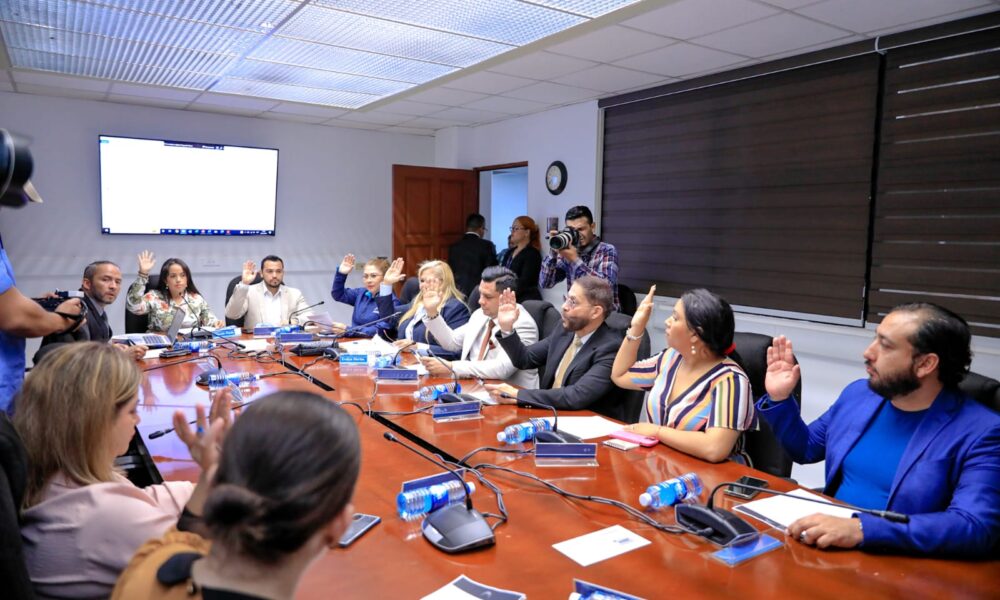The Legislation and Constitutional Points Commission began the study of the initiative to reform the Law of Notaries, with the aim of expanding the legal precepts related to the return of protocol books, issuance of testimonies, among others, which have the purpose of strengthen notarial public faith.
To extend the scope of the changes to the regulations to parliamentarians, the representatives of the Supreme Court of Justice (CSJ), Jorge Meléndez and José Zaldaña, attended the work table.
Meléndez explained that the proposals will limit the delivery of protocol books, since it represents a breach of obligations, becoming the main cause of reports and sanctions against notaries.
“The Notarial Section presents a historical delay in the receipt of protocol books, for which we have issued 1,210 reports,” said Meléndez.
According to the official, currently, the protocol books are delivered and if they have not expired they are returned, that is to say that the notaries will have the book that has not expired plus the one that is delivered.
With the reform, when a protocol book is exhausted, and a new one is required, it will be returned together with its annexes, remaining under the protection of the Notaries Section. In addition, once the protocol book expires, the judges will have 15 business days to deliver it.
The other modification that is proposed is to exclude the normative possibility of testimony under the modality of transcription, due to the fact that falsehoods can be produced and that the document does not bear signatures.
“We have a big problem in the legality of the registration of documents,” said Zaldaña.
He added that, according to a report from the Cenyro Nacional de Registro, there are around 300 documents that are withheld because there is identity theft.
«What is the common denominator? They are all by transcripts. That means that these means are being used to be able to register properties in this way,” Zaldaña said.
Therefore, the changes in the regulations include that testimonials must be extended by means of photostats or another form of reliable copy. It also establishes that testimonies may not be issued through the transcription system, except when it corresponds to the Supreme Court of Justice or in the case of a notary.
«In the Notarial Section we have books dating from 1800, they are so delicate that if they were copied they would be destroyed. Only in these cases could we do a transcription,” Zaldaña pointed out.
The parliamentarians agreed that it is necessary to update the Law of Notaries, because it does not provide legal certainty to Salvadorans.
«The Notary Law is a norm that is obsolete; Carrying out these reforms is very important. By making said modification, we will give certainty to the documents so that they have public faith, “said Coto.
His colleague Marcela Pineda added that this reform, as well as others that have been studied within this working group, are aimed at providing legal certainty to give the Salvadoran population peace of mind.
“These reforms are aimed at putting certain locks. For example, that it is not empowered, or that it is not so easy, that a person comes and begins to forge the signatures, that they begin to forge the documents, that their protocol book is messed up in some way. They are aimed at providing order, but above all to provide legal certainty,” said the legislator.
